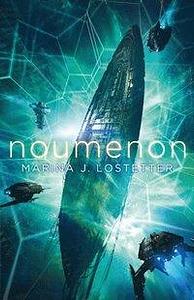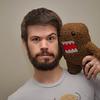Take a photo of a barcode or cover
hopeful
reflective
slow-paced
Plot or Character Driven:
Character
Strong character development:
Yes
Loveable characters:
Yes
Diverse cast of characters:
Yes
Flaws of characters a main focus:
N/A
I'm going to give this one an objective 3 for effort... Any author that can attempt a book of this enormity shouldn't get less. But... I do agree with many of the sub-3 reviews here concerning story depth and the "Hard Sci-Fi" aspect.
I will say that the book was fun enough to finish, although that's about where my enthusiasm ends.
This is definitely a book that might keep Missy teen readers happy so long as they've never read any real Hard Sci-Fi or Speculative Fiction.
I will say that the book was fun enough to finish, although that's about where my enthusiasm ends.
This is definitely a book that might keep Missy teen readers happy so long as they've never read any real Hard Sci-Fi or Speculative Fiction.
adventurous
dark
emotional
mysterious
medium-paced
Plot or Character Driven:
Plot
Strong character development:
No
Loveable characters:
No
A book club pick :)
Meh. Meh. Meh.
I really like generation ship stories, and it’s been a while since I read one. I was all anticipation! But we were not made for each other, this book and I.
Anyway, the year is 2088, and humanity has discovered hyperspace (called SD in this book – what’s wrong with good ole’ hyperspace?). Missions to the stars are in the works. One of them will go to something something star, because there seems to be an artificial construct around it. Maybe it’s a Dyson sphere, how exciting. Unfortunately, I am already bored, because the writing is so very, very, very bland. Mission planning is boring. The people are boring.
Guess what, they are sending lots of clones into space – cloned from people with the “best” genes. They select those somehow, with some hand waving. Rrrriiight. This is all to avoid dystopia and mutiny in a huge crew. Rrrriiight. Because total genetic determinism is 100% real! (Me, in a stage whisper: What about epigenetics? Environmental factors? Gut biome? Hello?)
Aaand we are off. There are nine long chapters in the book, each focusing on a different time period during the long journey, different characters from the same “clone lines” etc. The characters stay flat and annoying. There is a suicide epidemic, there is a rebellion, various humans go gagagagaga in predictable ways. The society descends into fascism, eugenics, slavery. Because humans, you know. (Thank you, I do know.) Then some humans see the light and realize that genes are not everything. Duh! Oh, they do reach that star, take a look at the alien artefacts… and then here is the next chapter, it’s been twenty years and they are going back to Earth now. They haven’t learned that much. Wait, what?
There are interesting things and ideas in the overall plot, but everything feels half-baked, not quite thought through. I did want to know what would happen next, while feeling bored and irritated, wondering about potential plot holes and logic.
Can I complain about the writing again? This book was telling me so many things. Thing x happened, then thing y, then character a did b… Book, can you show me, please? Nope. Also, there was this:
”…her round cheeks extraplumped by a welcoming smile”.
”…every ligament in her body thrummed with the desire to leave.”
”…her face held in the rigor mortis of scepticism.”
Ouch. Somebody, please, get me out of this book, I am getting an allergic reaction!
Most of my two stars belongs to I.C.C., the mission AI. I.C.C. gets a character arc! It’s always there, after all. You can watch it grow and develop. ”People were strange. They thought everyone wanted to be like them.” I wish this book only had I.C.C. as a POV character.
I am happy to be done! Now I can spend more time with other (better!) books I am reading.
P.S. There are sequels. Guess if I am interested.
Meh. Meh. Meh.
I really like generation ship stories, and it’s been a while since I read one. I was all anticipation! But we were not made for each other, this book and I.
Anyway, the year is 2088, and humanity has discovered hyperspace (called SD in this book – what’s wrong with good ole’ hyperspace?). Missions to the stars are in the works. One of them will go to something something star, because there seems to be an artificial construct around it. Maybe it’s a Dyson sphere, how exciting. Unfortunately, I am already bored, because the writing is so very, very, very bland. Mission planning is boring. The people are boring.
Guess what, they are sending lots of clones into space – cloned from people with the “best” genes. They select those somehow, with some hand waving. Rrrriiight. This is all to avoid dystopia and mutiny in a huge crew. Rrrriiight. Because total genetic determinism is 100% real! (Me, in a stage whisper: What about epigenetics? Environmental factors? Gut biome? Hello?)
Aaand we are off. There are nine long chapters in the book, each focusing on a different time period during the long journey, different characters from the same “clone lines” etc. The characters stay flat and annoying. There is a suicide epidemic, there is a rebellion, various humans go gagagagaga in predictable ways. The society descends into fascism, eugenics, slavery. Because humans, you know. (Thank you, I do know.) Then some humans see the light and realize that genes are not everything. Duh! Oh, they do reach that star, take a look at the alien artefacts… and then here is the next chapter, it’s been twenty years and they are going back to Earth now. They haven’t learned that much. Wait, what?
There are interesting things and ideas in the overall plot, but everything feels half-baked, not quite thought through. I did want to know what would happen next, while feeling bored and irritated, wondering about potential plot holes and logic.
Can I complain about the writing again? This book was telling me so many things. Thing x happened, then thing y, then character a did b… Book, can you show me, please? Nope. Also, there was this:
”…her round cheeks extraplumped by a welcoming smile”.
”…every ligament in her body thrummed with the desire to leave.”
”…her face held in the rigor mortis of scepticism.”
Ouch. Somebody, please, get me out of this book, I am getting an allergic reaction!
Most of my two stars belongs to I.C.C., the mission AI. I.C.C. gets a character arc! It’s always there, after all. You can watch it grow and develop. ”People were strange. They thought everyone wanted to be like them.” I wish this book only had I.C.C. as a POV character.
I am happy to be done! Now I can spend more time with other (better!) books I am reading.
P.S. There are sequels. Guess if I am interested.
medium-paced
Plot or Character Driven:
A mix
Loveable characters:
Complicated
Diverse cast of characters:
Yes
3.5 stars*
In an article of the most recent Interzone magazine, British writer Aliya Whiteley discusses science fiction as a genre that does not follow key scenes and expectations like one would expect in genres like romantic comedies or heist movies. She writes for example,
And a point where something goes wrong and everything falls out of plan, might I add. Marina J. Lostetter is freely playing with the genre and its lack of restrictions in terms of plot, in her debut novel Noumenon, an imaginative story that opens the curtains for this author with great potential. Continue reading..
In an article of the most recent Interzone magazine, British writer Aliya Whiteley discusses science fiction as a genre that does not follow key scenes and expectations like one would expect in genres like romantic comedies or heist movies. She writes for example,
a heist movie inevitably includes a planning sequence, and a meeting of team members.
And a point where something goes wrong and everything falls out of plan, might I add. Marina J. Lostetter is freely playing with the genre and its lack of restrictions in terms of plot, in her debut novel Noumenon, an imaginative story that opens the curtains for this author with great potential. Continue reading..
Another entry in the "generations ships are not the all-purpose answer early SF seemed to think they were" genre.
In this case, a flotilla of ships is sent for the sole purpose of investigating something anomalous around a distant star. Maybe it's a Dyson sphere in the process of being build? Anyway, the ships and crew are supposed to go out, investigate what's out there, and come back with the info. The elapsed time on earth will be a couple thousand years.
One interesting twist is that instead of relying on random human reproduction, the ship will be populated by clones. As one generation of clones approaches "retirement" (i.e., disposal) age, the generation of that clone line is activated and raised. The mission planners felt like they'd selected optimal gene lines, and just decided to keep them available.
The story is told episodically, at intervals of a couple hundred years, more or less. They find the star, learn what they can, and turn around to come back home, to a drastically changed earth. (Duh.) Along the way, there are the problems of big societies, just writ a little smaller due to the smaller number of clones.
It's an interesting perspective. It does seem strange to me to go that far, then turn around and come home to who-knows-what. Especially when the home planet stop responding/communicating after a few hundred years.
Not bad, some interesting ideas.
In this case, a flotilla of ships is sent for the sole purpose of investigating something anomalous around a distant star. Maybe it's a Dyson sphere in the process of being build? Anyway, the ships and crew are supposed to go out, investigate what's out there, and come back with the info. The elapsed time on earth will be a couple thousand years.
One interesting twist is that instead of relying on random human reproduction, the ship will be populated by clones. As one generation of clones approaches "retirement" (i.e., disposal) age, the generation of that clone line is activated and raised. The mission planners felt like they'd selected optimal gene lines, and just decided to keep them available.
The story is told episodically, at intervals of a couple hundred years, more or less. They find the star, learn what they can, and turn around to come back home, to a drastically changed earth. (Duh.) Along the way, there are the problems of big societies, just writ a little smaller due to the smaller number of clones.
It's an interesting perspective. It does seem strange to me to go that far, then turn around and come home to who-knows-what. Especially when the home planet stop responding/communicating after a few hundred years.
Not bad, some interesting ideas.
adventurous
emotional
hopeful
mysterious
tense
medium-paced
Plot or Character Driven:
Plot
Strong character development:
Complicated
Loveable characters:
Yes
Diverse cast of characters:
Yes
Flaws of characters a main focus:
Yes
adventurous
challenging
tense
medium-paced
Plot or Character Driven:
A mix
Strong character development:
Yes
Loveable characters:
Complicated
Diverse cast of characters:
Yes
Flaws of characters a main focus:
Yes
The age old question of nature versus nurture is at the forefront of this very intriguing scifi novel.
The narrative follows one of twelve deep space expeditions on a mission to investigate a distant star that seems to have a structure surrounding it and obstructing its light. Is this ‘natural’ or ‘made’ by another species? Due to the time involved to carry this undertaking - eons - Earth decides to man the convoys with clones specifically chosen to ensure its success, including mostly the experts that were involved in the original project. But to reduce people to just genes that conform to a specific talent is a naive move, if well-meant. Through a narration that jumps from generation to generation, we meet these clones deal with their situation, what it means to live in a small isolated community, far away from their birth planet, on a single goal.
Lostetter really focuses on the psychology and indeed sociology of such an experiment - the ships turning into a veritable petri dish. I was worried that the narration would feel disjointed, meeting each new clone batch but the author succeeds in linking them naturally, each new iteration of certain personalities bringing new aspects while keeping a certain recognisable element. This is especially true of the connecting thread that is the AI, who is on its own journey of development. A thought-provoking and entertaining read.
The narrative follows one of twelve deep space expeditions on a mission to investigate a distant star that seems to have a structure surrounding it and obstructing its light. Is this ‘natural’ or ‘made’ by another species? Due to the time involved to carry this undertaking - eons - Earth decides to man the convoys with clones specifically chosen to ensure its success, including mostly the experts that were involved in the original project. But to reduce people to just genes that conform to a specific talent is a naive move, if well-meant. Through a narration that jumps from generation to generation, we meet these clones deal with their situation, what it means to live in a small isolated community, far away from their birth planet, on a single goal.
Lostetter really focuses on the psychology and indeed sociology of such an experiment - the ships turning into a veritable petri dish. I was worried that the narration would feel disjointed, meeting each new clone batch but the author succeeds in linking them naturally, each new iteration of certain personalities bringing new aspects while keeping a certain recognisable element. This is especially true of the connecting thread that is the AI, who is on its own journey of development. A thought-provoking and entertaining read.
This book drew me in pretty quickly and has an interesting and intriguing plot that really gets you thinking. It was one of those books that I found really observing, each jump forward in years, giving me plenty to ponder. The characters were well written and believable including the AI who I adored. Definitely worth a read.






